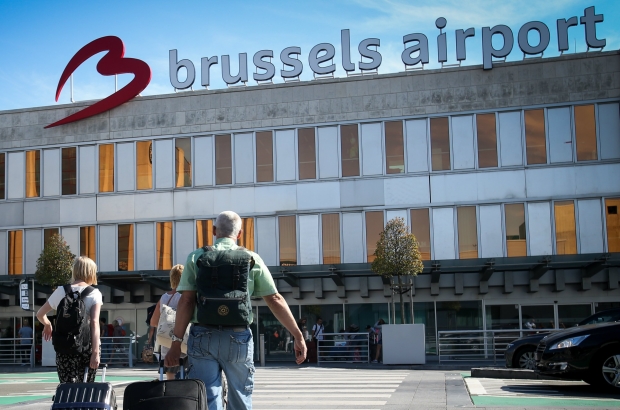- Daily & Weekly newsletters
- Buy & download The Bulletin
- Comment on our articles
Municipalities and environmental groups appeal against Brussels Airport permit
The ongoing dispute over noise pollution from Brussels Airports continue with the Flemish government initiating legal proceedings to demand penalty payments of €100,000 per day as long as the federal government does not readjust the flight routes.
The initiative comes from Flemish minister Ben Weyts (NVA). Federal mobility Minister Gilkinet (Ecolo) has already dismissed the proceedings as "electioneering".
The Flemish government previously went to court against new navigation procedures introduced in October, claiming they were too concentrated over the Flemish periphery of Brussels, which falls under the competency of Weyts.
The court ruled in favour of Flanders in February, ordering the federal government to establish new flight routes for Zaventem airport within six months.
But Weyts said that Gilkinet was not planning to abide by the ruling and that “if the federal government is not amenable to reasonableness and arguments, then heavy fines will just have to force the breakthrough”.
Weyts said it was likely the court will approve the penalty payments, pointing out that the federal government already has to pay penalty payments of €50,000 a week to some municipalities north of Brussels as a result of another verdict.
He said he wanted to use those payments to make noise protection investments in the affected municipalities.
“We are demanding €100,000 per day in the name of the affected inhabitants of Vilvoorde, Machelen, Wemmel, Grimbergen, Meise and the other Flemish municipalities that are disproportionately burdened,” the minister said.
“All regions and inhabitants of this country enjoy the pleasures of the airport, so the burden should also be shared fairly.”
Gilkinet’s cabinet was sceptical of the intentions behind the legal proceedings.
“This new approach clearly fits into Ben Weyts' pre-electoral election strategy, while minister Gilkinet always wants to continue to cooperate with Flanders on this dossier in full transparency and constructively,” a spokesperson said.
The spokesperson also highlighted the measures Gilkinet put on the table so far to reduce inconvenience for all affected residents, “including quiet nights, which N-VA opposes”.
Other measures cited include the introduction of variable charges and stricter environmental and noise standards in the management contract with air traffic controller Skeyes, along with a draft law defining the method for determining flight routes, taking into account all interests and in particular those of residents.
Gwendolyn Rutten (Open VLD), a fellow Flemish minister, also accused Weyts of using the issue purely for election reasons.
“Demanding penalty payments from one government to another doesn't help us one bit,” she said.
The issue of noise pollution from Brussels Airport is longstanding. After the airport was granted an indefinite environmental permit by Flemish environment minister Zuhal Demir, at least five municipalities and several environmental groups launched appeals.
Vilvoorde, Grimbergen and Wemmel requested an "in-depth examination" of the permit and asked for mediation, saying the permit does not achieve the desired balance between the economy, health and air traffic nuisance.
They argue that it will increase the concentration of air traffic – particularly night-time noise – over the northern periphery of Brussel and that the harmful effects on health of night flights have not been sufficiently taken into account.
The mayors of the three municipalities are calling for flights to be spread evenly rather than concentrated in the northern suburbs, where more than 100,000 people live.
They are also suggesting that weekend quiet nights be extended to 7.00 instead of 6.00. Lastly, they want concrete measures for the transport of goods to and from the airport so that drivers no longer have to use local roads around the airport.
The municipality of Kortenberg in Flemish Brabant also lodged an appeal, demanding the cancellation of the environmental permit on the grounds that the health of people living by the airport was not taken into proper consideration.
The municipality is also critical of the fact that the new permit is open-ended.
“The conditions imposed are insufficient to guarantee the essential balance between the airport's economic interests and the quality of life of its residents,” the mayor said.
Woluwe-Saint-Pierre also appealed against the airport’s permit for similar reasons, noting that the municipality “remains the most overflown commune in Brussels”, according to mayor Benoît Cerexhe.
“The number of flights has doubled in recent years,” Cerexhe said.
The five opposing municipalities are backed up by 13 environmental organisations and residents' associations.
Other municipalities have also voiced opposition, including Auderghem, Woluwe-Saint-Lambert, Watermael-Boitsfort, Ixelles, Etterbeek, Schaerbeek, Jette, Ganshoren and Berchem-Sainte-Agathe.
Brussels environment minister Alain Maron (Ecolo) wants to file an appeal, as well, but it is not yet clear if he will be able to without support from the entire Brussels government.
At the same time, Brussels Airlines is also unhappy with the new environmental permit, saying it will “considerably limit the future possibilities of Brussels Airlines”.



















